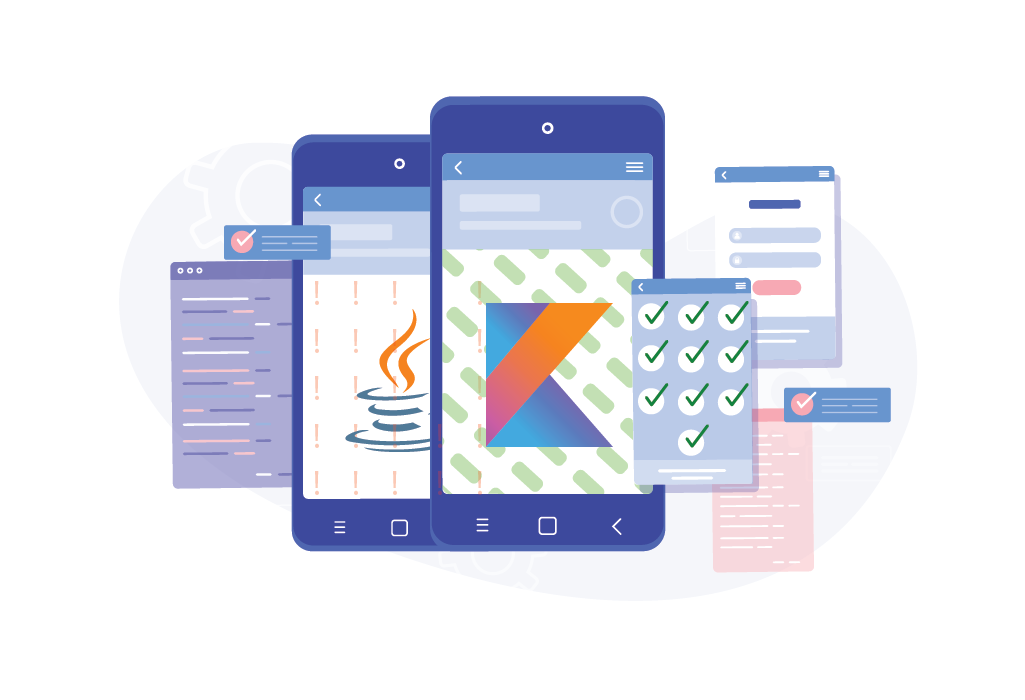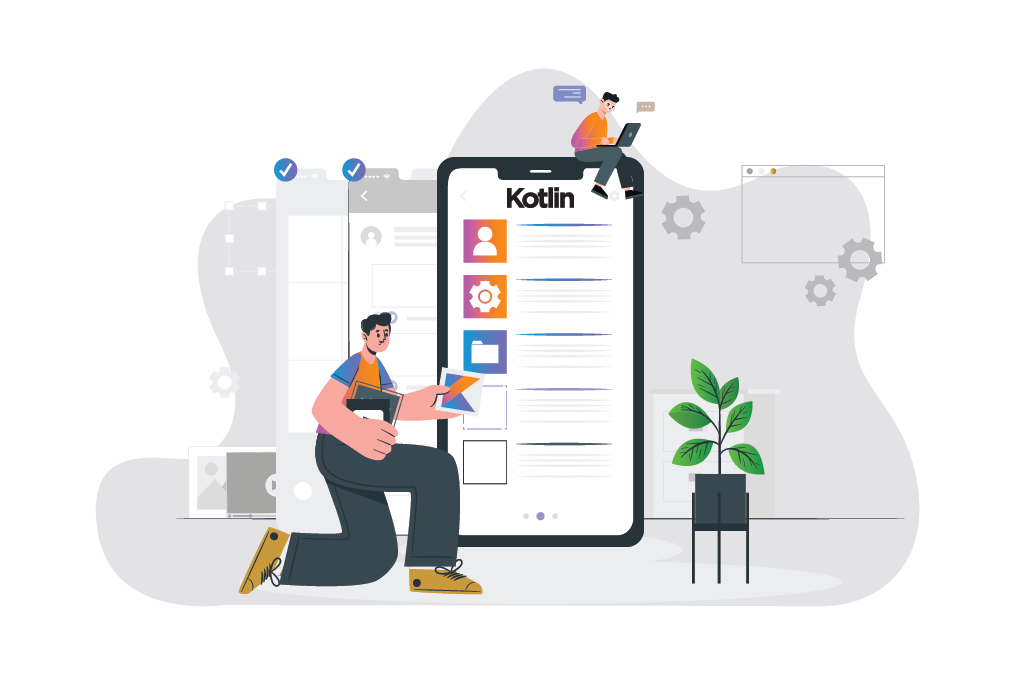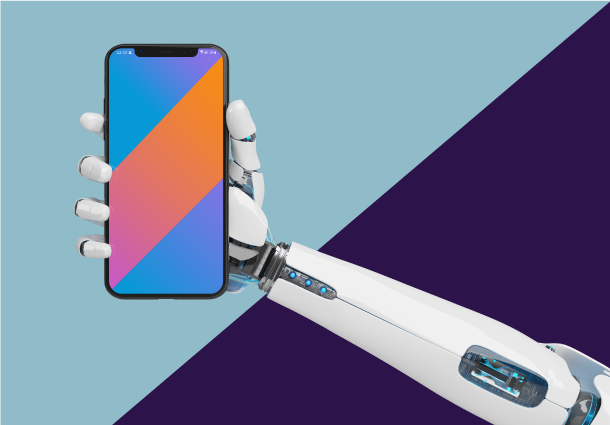Kotlin: A Masterpiece of Modern Programming Brilliance
Kotlin is an open-source, contemporary programming language created by JetBrains. It ensures smooth interchange with current languages, especially Java, while guaranteeing consistent interoperability with it. Kotlin for android development is a compact syntax structure that lessens standard code, further developing code coherence and practicality. It focuses on security by consolidating null safety mechanisms and reducing null pointer exceptions. Developers can undoubtedly switch to Kotlin from Java, profiting from its cutting edge language features like extension functions and coroutines. The language has acquired ubiquity, particularly in Android application development, with true help from Google. For server-side programming, web development, and cross-platform applications in addition to mobile development, it is important to know the benefits of using Kotlin. Its dynamic community and expanding environment add to its continuous development and acceptance in different software development spaces.
Java: The Majestic Backbone of Cross-Platform Excellence
Java is a broadly utilized, object-oriented, high-level programming language created by James Gosling and his colleagues at Sun Microsystems (later procured by Oracle). When Java was first introduced in 1995, Java immediately acquired prevalence because of its “write once, run anywhere” ability, permitting programmers to construct platform-independent applications that can run on any hardware that supports the Java Virtual Machine (JVM). This portability and flexibility made Java a conspicuous language in different fields, including web development, business applications, mobile applications (using Android), and many more. Java’s syntax is like C++, making it open to developers from assorted programming backgrounds. Key features of Java incorporate autonomous memory management via garbage collection, strong security features, robust libraries, and powerful libraries, giving an abundance of tools and backing for developers around the world.
Enfold the Bountiful Benefits of Using Kotlin Over Java
This adaptable programming language includes a slew of advantages that improve development productivity and code quality. Kotlin provides developers with understandable, manageable, and error-resistant code because of its clear syntax, smooth Java compatibility, and powerful null safety features. With Kotlin as your dependable ally, explore the world of increased productivity, better user experiences, and seamless cross-platform programming. Here are the reasons why use Kotlin over Java:
Concise and Comprehensible Code: Kotlin’s design underscores quickness and lucidity, bringing about code that is more expressive and more clear. By decreasing standard code and giving intuitive constructs, Kotlin empowers developers to achieve the same functionality with fewer lines of code compared to Java. This conciseness saves development time as well as limits the possibilities of introducing errors, leading to more maintainable and bug-free codebases.
Interoperability: Kotlin programming language is completely viable with Java, permitting developers to flawlessly coordinate Kotlin code into existing Java projects and vice versa. This feature facilitates a smooth transition for organizations with laid-out Java codebases, empowering them to take on Kotlin without needing to rewrite their entire code. Developers can leverage existing Java libraries, frameworks, and tools within Kotlin projects, making it a versatile language. Kotlin is a definite choice for all applications because of the ability to access the java functionalities.

Null Safety: Kotlin’s type framework consolidates null safety features, which address the famous “null pointer exception” issue common in languages like Java. Kotlin’s type system distinguishes between nullable and non-nullable types, lessening the gamble of runtime null pointer exceptions. Developers are expected to expressly deal with null values, making the code more robust and enhancing overall code quality.
Upgraded Efficiency: Kotlin’s language features, such as extension functions, data classes, and smart casts, add to further developed developer efficiency. Extension functions allow developers to add new functionalities to existing classes without altering their source code. Data classes automatically generate common boilerplate code for value objects, streamlining object creation and manipulation. Smart casts enable the compiler to gather the type of a variable, reducing the need for unequivocal type checks. These features altogether save developers time and exertion, upgrading overall efficiency.
Robust Tooling: Popular Integrated Development Environments (IDEs) like Android Studio, IntelliJ IDEA, and others offer great tool support for Kotlin. Developers may greatly benefit from the code navigation, refactoring, and code analysis tools provided by the Kotlin modules. The ability to focus on producing excellent code and finding potential problems early in the development cycle is made possible by seamless interaction with the IDEs, which increases productivity even further.
Coroutines for Asynchronous Programming: The introduction of coroutines for asynchronous programming in Kotlin makes asynchronous programming simpler. Developers may create asynchronous code using coroutines in a sequential, linear fashion that resembles synchronous programming. By eliminating the complexity of nested callbacks or complicated threading techniques, this simplification results in code that is simpler to comprehend and maintain.
Gradual Adoption: One of the greatest strengths of software development with kotlin is its ability to be gradually embraced into existing Java projects. Developers can introduce Kotlin files alongside Java files, enabling a seamless transition to Kotlin without affecting the project’s functionality. This progressive adoption approach is beneficial for associations with ongoing projects and permits developers to explore different avenues regarding Kotlin in isolated pieces of the codebase prior to focusing on a full migration.
Officially Supported by Google for Android: Google’s explicit endorsement of Kotlin as a first-class language for Android app development is a testament to its superiority. Kotlin will continue to get upgrades, performance enhancements, and compatibility with the Android environment thanks to Google’s support. Subsequently, Kotlin has quickly acquired ubiquity among Android developers, making it a favored language choice for Android application development.
Active Community and Growing Ecosystem: Kotlin flaunts a flourishing and dynamic community of developers, enthusiasts, and contributors. This dynamic community drives the development of the Kotlin ecosystem, bringing about plenty of libraries, tools, and frameworks that supplement and broaden Kotlin’s capacities. Developers can easily access these resources to enhance their projects and accelerate development.
Cross-platform Development: Kotlin Multi-Platform enables code sharing between different platforms, such as Android, iOS, web, and backend. This feature diminishes duplication efforts and speeds up cross-platform development, making it easier for developers to maintain consistent logic and functionality across various platforms. Kotlin’s cross-platform capabilities open up new possibilities for building applications that range from numerous devices and platforms, giving an upper hand in the consistently developing in ever-evolving world of software development.
Kotlin’s Trailblazing Impact: Elevating Enterprise-Level Development Across Diverse Industries
The adoption of Kotlin for Android development in enterprise-level development has had a huge effect and prompted eminent upgrades across different ventures. As a result of its smooth connection with Java, critical community backing, and ongoing development, Kotlin has a promising future as a favored language for numerous commercial operations. Here is a breakdown of the advantages well-defined for various sectors:
Financial Sector: The financial sector benefits from Kotlin’s safety features, like null safety and strong typing, which help produce dependable and adaptable financial apps. Financial organizations may effectively coordinate current frameworks on account of its similarity with Java, ensuring smooth transitions and diminishing interference during technological updates.
E-commerce Industry: Kotlin’s clear syntax and improved effectiveness accelerate development, permitting e-commerce businesses to deliver feature-rich applications effortlessly. Coroutines, which the language upholds for asynchronous programming, streamline user experiences and give consistent performance indeed under heavy load.
Healthcare Domain: Kotlin’s security and dependability are essential for operations in the healthcare sector, where data accuracy and security are of extreme importance. The language’s easy conversion of legacy systems is made conceivable by its impeccable connection point with Java codebases.
Technology in education: The expressive syntax and ease of use of Kotlin make it simpler to design educational applications, which is beneficial to both instructors and students. The language cross-platform compatibility makes it easier to produce dynamic and intriguing learning surroundings.
Travel and Hospitality: Due to Kotlin’s Cross-platform features, organizations can create applications for various platforms, including web, Android, and iOS, fulfilling the various needs of the travel sector. Real-time data changes are streamlined by its asynchronous programming capacities, ensuring an immaculate booking and outing experience.
Manufacturing Sector: Applications in the manufacturing sector are more productive because of Kotlin’s adequacy and clear codebase. Its rigidity and affinity for numerous hardware platforms empower smooth integration with industrial systems and Internet of Things ( IoT) devices.
Telecoms: The speed and asynchronous capabilities of Kotlin make it conceivable to make applications for telecoms that are fast and effective. Because of its rigidity, organizations might create cross-platform applications and services that entice an assortment of customer inclinations.
Seamless Framework Migration: Embracing the Path from Java to Kotlin
Utilizing Kotlin rather than Java could make switching to another framework simpler than when using Java for more conventional applications. The smooth Java compatibility of Kotlin is fundamental in making such migrations possible. The following are a few elements that facilitate migration:
Compatibility: Kotlin code and Java code can coexist in a similar project, considering the dynamic adoption of the new framework. Existing Java code can keep on running alongside Kotlin during migration, considering a consistent and progressive transition to the new framework. Kotlin Compatibility works well with existing Java code and libraries.
 Shared Language Qualities: Kotlin and Java both offer various language attributes, making it simple for developers who are familiar with Java to utilize. Developers who are switching to another system benefit from this shared trait since it makes it simpler for them to utilize their previous expertise.
Shared Language Qualities: Kotlin and Java both offer various language attributes, making it simple for developers who are familiar with Java to utilize. Developers who are switching to another system benefit from this shared trait since it makes it simpler for them to utilize their previous expertise.
Access to Java Libraries: Free utilization of Java libraries and systems, including those specific to the new framework, is allowed for Kotlin applications. As a result of the interoperability, developers might use Java resources that already exist, saving time and effort.
Increased Developer Productivity: When compared to Java, Kotlin frequently delivers more concise and viable code because of its expressive capabilities and compact syntax. This can help fathom and revise old code for the new framework while likewise expanding developer effectiveness during migration.
Extensive Tool Support: Popular Integrated Development Environments (IDEs) like Android Studio and IntelliJ IDEA provide extensive tool support for Kotlin. The refactoring capabilities, code analysis, and intelligent suggestions offered by the IDEs streamline the migration process and help developers become used to the new framework.
Drawing the Final Curtain
Kotlin’s journey from inception to widespread adoption has been nothing short of remarkable. Its exquisite design, compatibility with Java, and an impressive cluster of features have solidified its status as a top-tier programming language. Kotlin stands as a masterpiece of present-day programming splendor, enabling designers, to improve on complex tasks, and work with the development of creative and productive applications. With its clear syntax and consistent interoperability with Java, Kotlin guarantees brief and fathomable code, diminishing the development time and upgrading code quality. Its robust null safety mechanisms make it a safer choice, wiping out the notorious null pointer exceptions often experienced in Java.
The impact of Kotlin goes beyond the mobile app domain. Across assorted enterprises, Kotlin has made wonderful progressions. As more organizations perceive the worth of Kotlin, its direction towards turning into a favored language for different business operations is obvious, establishing its place as a true masterpiece. As long as its ecosystem and community keep growing, Kotlin has a bright future as the preferred language for a variety of business processes. Kotlin has become a real masterpiece of contemporary programming genius, revolutionizing how developers create and deploy software across a variety of sectors and domains, whether it be in the development of mobile apps, server-side programming, online applications, or cross-platform applications.
Embrace the Kotlin Renaissance with Pattem Digital, Where App Development Brilliance Unfolds
Visit our Kotlin app development company to experience the height of creativity. We thrive at creating cutting-edge mobile apps that change user experiences, led by a team of enthusiastic Kotlin fans. We develop high-performance apps with slick interfaces and smooth functioning by utilizing Kotlin’s strength and adaptability. We serve a range of sectors, from startups to large corporations, and provide customized solutions that connect with your target market. Join us in embracing cutting-edge Kotlin technology as we take your app concept to new levels of success. Join forces with our specialists to maximize Kotlin’s capabilities for your app development requirements.


